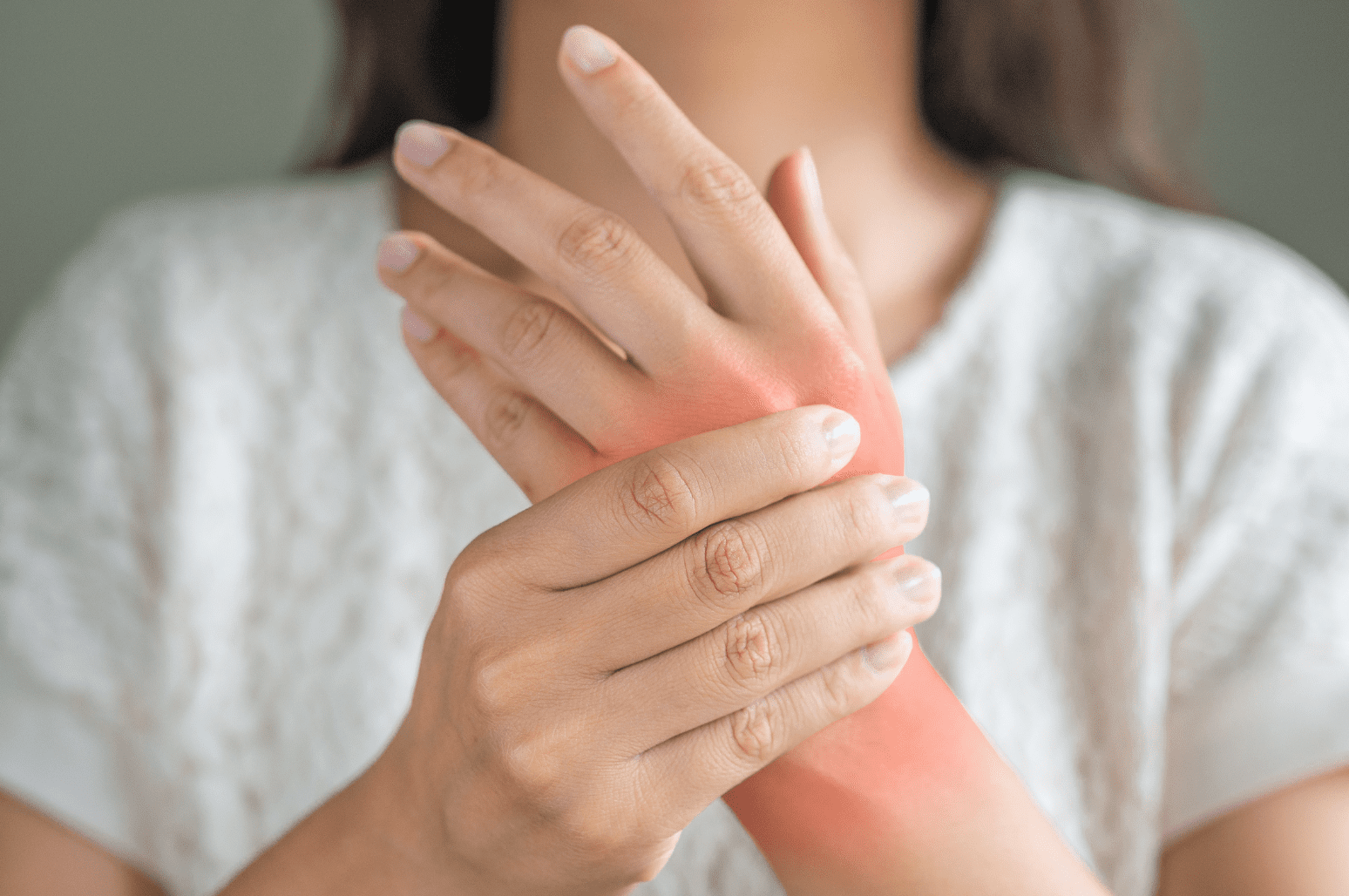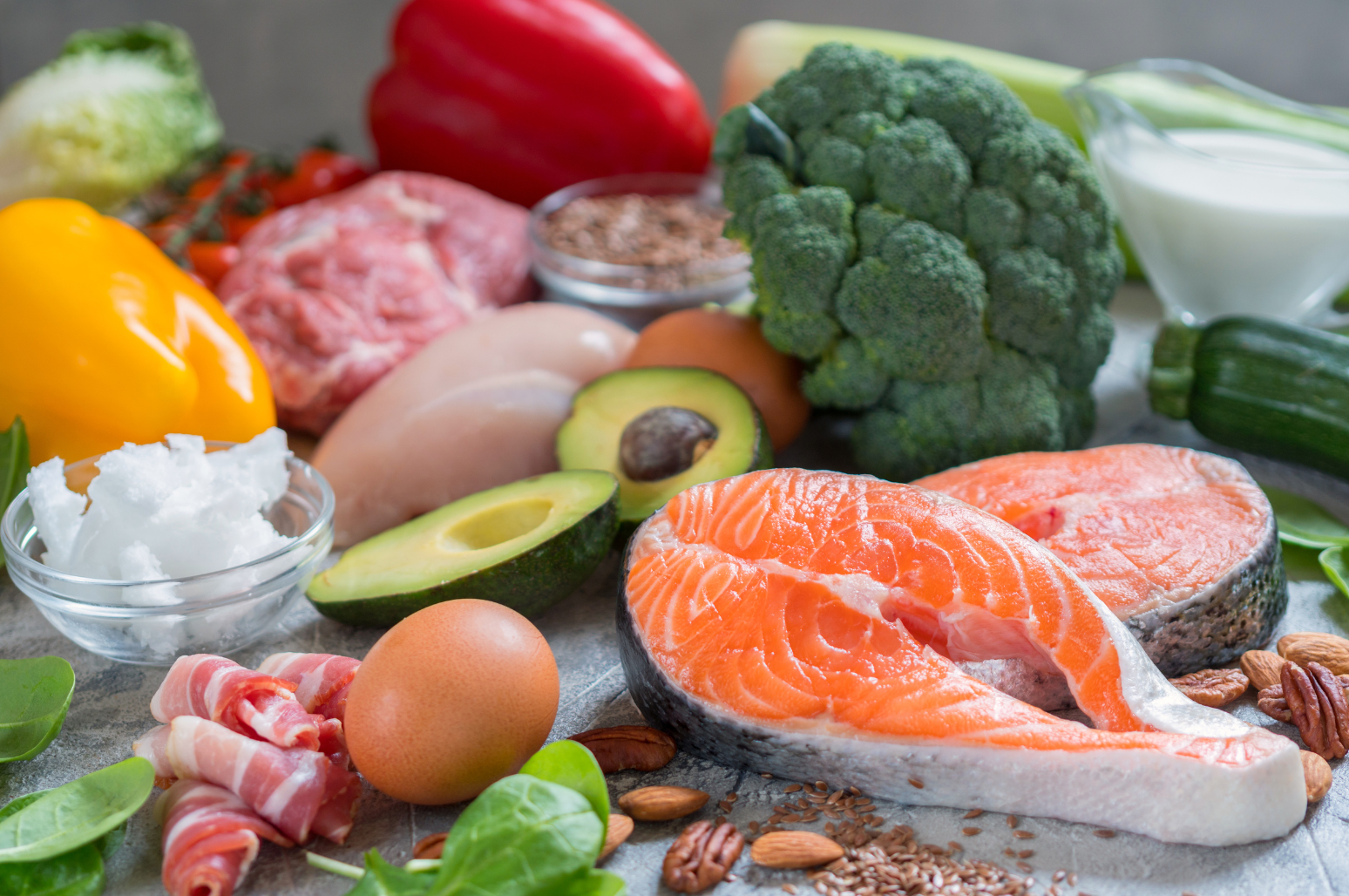
In the United States, an estimated 7.5 million adults over age 20 have psoriasis and face the daily challenges of dry, rough, itchy, and uncomfortable skin. [1] Research shows psoriasis is becoming more prevalent, but it’s unclear if that’s because more people are being diagnosed or more people are developing the condition. [2] The ketogenic diet has shown promise in treating a range of conditions and diminishing symptoms, including skin problems. So, what about the ketogenic diet and psoriasis? What does the research show and what are keto dieters experiencing? This article digs into what we know about keto and psoriasis.
What Is Psoriasis?
Psoriasis is an autoimmune disease in which the body produces skin cells too quickly, that is, in just a few days. The skin cell production process normally takes an entire month in those without psoriasis. With such accelerated production, the skin cells involved with psoriasis don’t have sufficient time to fall off, so they accumulate, resulting in scaling, inflammation, and redness.
Skin affected by psoriasis can be grayish with thick, red patches that may bleed and crack. On darker skin tones, psoriasis may present as darker brown or purplish color patches. These patches usually show up on the elbows, knees, and other joints, but they could develop on other body parts, like the neck, scalp, and face. Skin with psoriasis can be dry, itchy, sore, and burning, and many people also have swollen, painful joints. The condition comes and goes in flares where symptoms worsen before subsiding or diminishing.
Psoriasis isn’t contagious, but you’re more likely to develop it if you have a family member with the condition. [3] It’s also linked to certain other conditions, including inflammatory bowel disease, depression, anxiety, and psoriatic arthritis. It isn’t exactly clear what causes psoriasis, but the immune system, genetics, and environmental triggers could play a role. These environmental triggers include certain medications, infection, stress, and injury.
Treatments for psoriasis aim to reduce inflammation, soothe the skin, and slow the growth of skin cells. The skin condition is usually treated with lifestyle changes, light therapy, topical medications, and systemic medications. So, what about a ketogenic diet? How does keto affect psoriasis?
How Does Keto Affect Psoriasis?

There isn’t enough scientific evidence specifically on keto and psoriasis, and more studies are needed. One impressive study concluded that psoriasis symptoms got better on a ketogenic diet, including pain. [4]
On the other hand, one animal study found that certain types of fats, namely MCTs from coconut oil, could worsen psoriasis symptoms. These researchers theorized that this might be because MCTs are shorter in length than other types of fats, and they burn faster and could prompt a buildup of neutrophils (a type of white blood cell) in the skin. However, this study used lab animals and did not assess a whole-food approach to keto, so it didn’t replicate an actual keto diet. [5]
It’s possible a keto diet could improve psoriasis symptoms for several reasons:
Inflammation
Inflammation is a key player in most diseases. Psoriasis involves inflammation, and the ketogenic diet has repeatedly been shown to reduce inflammation and improve a range of inflammatory conditions, from arthritis to dermatitis. Studies reveal the low sugar intake and healthy fats consumed on a ketogenic diet decrease inflammatory markers more than a low-fat diet. [6] [7] Sugar and drinks sweetened with sugar have been proven to fuel inflammation, and keto dieters leave those in the past. A well-balanced ketogenic diet is anti-inflammatory and switches the metabolism over to burning necessary dietary fat and producing beneficial ketones.
Skin Conditions and the Mitochondria
In addition to the wealth of research on how keto lowers inflammation, studies also underline the benefits of the ketogenic diet for the mitochondria and inflammatory dermatologic disease—skin conditions that cause inflammation of the skin or autoimmune disorders. At the same time, excess sugar is known to be damaging to the mitochondria. Studies also show that keto has promise for autoimmune diseases like multiple sclerosis. [8] [9] You might have also heard through the grapevine that going keto improves psoriasis symptoms as the anecdotal evidence continues to grow on the internet.
Obesity and Excess Body Weight
Due to the link between obesity and inflammation, and inflammation and psoriasis, it isn’t difficult to see how eating an inflammatory diet that promotes weight gain could also fuel psoriasis. Psoriasis is associated with obesity, metabolic syndrome, and a dysfunctional metabolism, and a ketogenic diet is renowned for boosting the metabolism, normalizing blood sugar and insulin levels, promoting weight loss, and more. A low-carb, high-fat diet is one of the best diets for achieving sustainable weight loss. [10]

Insulin resistance is also connected to psoriasis, and, unsurprisingly, lowering all that sugar on keto and enjoying those satiating healthy fats stabilizes insulin levels and improves insulin resistance, which could, in theory, improve psoriasis. When you have insulin resistance, sugar stays in your blood for too long and worsens inflammation.
Many psoriasis doctors and experts also believe alcohol aggravates psoriasis, and most alcohol is off-limits on keto.
Gut Health
Some researchers have examined the microbial structure (gut bacteria) of people with psoriasis and found that their microbiomes had less bacterial diversity and clearly differed from those without psoriasis. This means the health of your digestive system likely influences psoriasis. A whole food-based, well-formulated ketogenic diet is known to improve digestive health in general, especially if you incorporate fermented foods and probiotics. [11]
Elimination Diet
Ultimately, it might take a little experimentation with diet and foods to figure out what works best for you. For instance, maybe you switch to low-carb and notice your skin is getting better. In that case, it’s probably a good sign that this way of eating is positively influencing your metabolism, immune system, and inflammatory markers. Many psoriasis doctors and experts recommend trying an elimination diet where you cut out some of the top known allergens, such as eggs, nightshades, and gluten, at least for two or three months. You add those foods back in one at a time, monitor how you feel, and make notes in a food diary, so you can keep track of what foods make you feel worse and worsen psoriasis symptoms. [12]
It’s always best to talk to your doctor or healthcare professional before making any significant dietary changes. Overall, it appears a ketogenic diet could be a positive move for those dealing with psoriasis, but more scientific research is necessary.
References
Armstrong, A. W., Mehta, M. D., Schupp, C. W., Gondo, G. C., Bell, S. J…Griffits, C. E. M. (2021). Psoriasis prevalence in adults in the United States. JAMA Dermatology, DOI:10.1001/jamadermatol.2021.2007
World Health Organization (WHO) (2016). Global Report on Psoriasis, 9789241565189_eng.pdf; jsessionid=0E5796EA4B66CBF3D3FD2073FC200974 (who.int)
National Psoriasis Foundation. Psoriasis: Causes, Triggers, and Treatments, Psoriasis: Causes, Triggers and Treatments: National Psoriasis Foundation
Castaldo, G., Pagano, I., Grimaldi, M., Marino, C., Molettieri, P…Rastrelli, L. (2021). Effect of very-low-calorie ketogenic diet on psoriasis patients: A nuclear magnetic resonance-based metabolomic study. Journal of Proteome Research, 20(3), 1509-1521. DOI: 10.1021/acs.jproteome.0c00646
Sternberg, F., Leitner, J., Aminzadeh-Gohari, S., Sanio, P., Koller, A…Lang, R. (2019). The influence of ketogenic diets on psoriasiform-like skin inflammation. Journal of Investigative Dermatology, https://doi.org/10.1016/j.jid.2019.07.718
Forsythe, C. E., Phinney, S. D., Fernandez, M. L., Quann, E. E., Wood, R. J…Volek, J. S. (2007). Comparison of low fat and low carbohydrate diets on circulating fatty acid composition and markers of inflammation. Lipids, https://doi.org/10.1007/s11745-007-3132-7
Masino, S. A., & Ruskin, D. N. (2013). Ketogenic diets and pain. J Child Neurol, DOI: 10.1177/0883073813487595
Fomin, D. A., McDaniel, B., & Crane, J. (2017). The promising potential role of ketones in inflammatory dermatologic disease: A new frontier in treatment research. Journal of Dermatological Treatment, https://doi.org/10.1080/09546634.2016.1276259
Storoni, M., & Plant, G. T. (2015). The therapeutic potential of the ketogenic diet in treating progressive multiple sclerosis. Multiple Sclerosis International, https://doi.org/10.1155/2015/681289
Jensen, P., & Skov, L. (2016). Psoriasis and obesity. Dermatology, DOI: 10.1159/000455840
Codoner, F. M., Ramirez-Bosca, A., Climent, E., Carrion-Gutiurrez, M., Guerrero, M…Chenoll, E. (2018). Gut microbial composition in patients with psoriasis. Scientific Reports, DOI: 10.1038/s41598-018-22125-y
Journal of the Academy of Nutrition and Dietetics. (2014). Is There Research to Support a Specific Diet for Psoriasis? Is There Research to Support a Specific Diet for Psoriasis? (jandonline.org)










